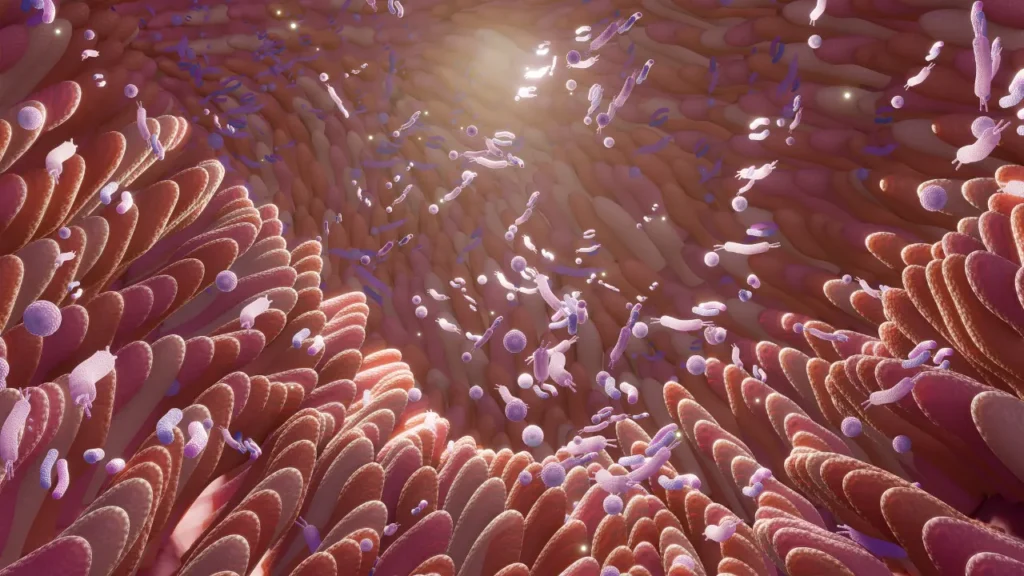A common dietary supplement called bean pod is made from the Phaseolus vulgaris plant’s beans. This supplement is well-known for its possible health advantages, which include enhanced digestion and weight loss. Nevertheless, despite its widespread use, there is little information available regarding the ideal dosage, adverse effects, and potential drug interactions. We will give a thorough analysis of bean pods in this article, covering their nature, health advantages, recommended dosage, negative effects, possible drug interactions, and other pertinent details.
You May Also Like:
The Best Mushroom Supplements for Memory: 5 Top Brands Reviewed
Finding the Best Supplements for Brain Fog After COVID: 5 Top Brands Reviewed
Bean Pod: Benefits, Dosage, Side Effects, Drug Interactions, and Other Important Information is an original (NootropicsPlanet) article.
Nature of Bean Pod
The Phaseolus vulgaris plant, usually referred to as the common bean, produces beans that are used to make supplements. These beans are a fantastic source of fiber, protein, and numerous other minerals. Bean pod supplements are created by extracting the active components of the beans which are then turned into powder. Alpha-amylase inhibitors are among the bean pod’s active components that lessen the activity of the alpha-amylase enzyme in the body. Alpha-amylase enzymes convert carbohydrates into simple sugar which is then taken into the bloodstream. The bean pod may aid in weight loss by decreasing the activity of this enzyme, which may lower the quantity of carbs taken into the bloodstream.
Health Benefits of Bean Pod
- Weight Loss
One of the bean pod’s most well-known health advantages is its potential to promote weight loss. As mentioned, the alpha-amylase inhibitors decrease the alpha-amylase enzyme’s activity hence reducing the amount of carbs taken into the bloodstream. This can aid in lowering calorie consumption overall, which may result in weight loss. Bean pods are also a great source of fiber, which can help people feel fuller for longer and eat less overall.
- Better Digestion
Improved digestion is another potential health advantage of bean pods. Bean pods contain high fiber content which encourages regular bowel motions and helps to prevent constipation. The alpha-amylase inhibitors in bean pods may also work to lessen the amount of carbs taken into the bloodstream, which can lower the risk of digestive problems including bloating, gas, and indigestion.
- Drop in Blood Sugar Level
Blood sugar levels may be decreased by bean pod as well. When the alpha-amylase enzyme’s activity is decreased, blood sugar levels decrease along with caloric consumption. The fibers in bean pods also help in controlling the absorption of glucose into the bloodstream.

Chemistry of Bean Pod
Bean pod comes with many active ingredients, such as alpha-amylase inhibitors and fiber. The alpha-amylase inhibitors in bean pods are chemical components that reduce alpha-amylase enzyme activity in the body. Alpha-amylase inhibitor protein (alpha-AIP) and phaseolamin are two of these chemicals.
Alpha-AIP is a protein that binds to the active site of the alpha-amylase enzyme. This keeps the enzyme from breaking down carbohydrates into simple sugars. Another type of alpha-amylase inhibitor called phaseolamin is made from the white kidney bean which also works by binding to the active site of the alpha-amylase enzyme.
Certain fibers in bean pods can be digested while others do not. Fibers that are not digested by our body are cellulose, hemicellulose, and lignin. These fibers make you feel full and add bulk to your digestive system. They may help in your digestion along with promoting healthy bowel movements. Soluble fibers like pectin and gums can help control how much glucose gets into the bloodstream which lowers blood sugar levels.
Physiological Mechanisms of Action of Bean Pod
Most of the possible health benefits of bean pods come from their alpha-amylase inhibitors and fiber. Alpha-amylase inhibitors slow down the activity of the alpha-amylase enzyme in the body, which could help you eat fewer calories and promote weight loss. On the other hand, the fibers make you feel fuller and help you have normal bowel movements. Also, the fiber in bean pods also helps in lowering blood sugar levels.
Overall, the bean pod’s physiological effects come from its ability to reduce the activity of the alpha-amylase enzyme and its fiber content, creating a healthy gut microbiome that improves your digestive system.


Optimal Dosage of Bean Pod
The best dosage for bean pod supplements is not defined due to a lack of qualitative research on their efficacy. Most studies, though, have used 500-1500 mg of bean pod per day. Before starting a new supplement regimen, it’s important to follow the dosage instructions on the label and talk to your doctor.
Side Effects of Bean Pod
Bean pod is usually thought to be safe, but there are some possible side effects that you should be aware of. Some of these can happen in the stomach, like bloating, gas, and diarrhea. Also, some people may be allergic to bean pods, which can cause signs like itching, hives, and trouble breathing. If you have any bad side effects while taking the bean pod, immediately stop the intake of supplements.


Potential Substance Interactions with Bean Pod
Some medicines, like those used to lower blood sugar and blood pressure, may not work well with bean pods. This is because bean pods may slow the entry of carbohydrates into the bloodstream and control blood sugar levels, which could cause problems with these medicines. Also, bean pods may increase the chance of bleeding if they are taken with anticoagulant or anti-platelet medicines. Before you start taking any new supplements, you should seek personal advice from healthcare professionals, especially if you are already taking prescription drugs.
Best Responsible Use of Bean Pod
Bean pod is usually thought to be safe, but it’s important to use it in a smart way to get the best health results. Some of the best ways to use bean pods are:
- Talk to your doctor. Before starting a new supplement routine, it’s important to talk to your doctor to make sure it is safe for you. This is particularly important for people who take prescription drugs, since bean pod may interact with some drugs.
- Take the dose that is suggested. It is not clear what the best amount of bean pod is, but most studies have used doses between 500 mg and 1500 mg per day. Before increasing the dose, you should talk to a healthcare source and follow the instructions on the product’s label.
- Keep an eye out for side effects. Bean pod is usually thought to be safe, but there are some side effects that you should be aware of, such as stomach problems and a higher risk of bleeding. It is important to keep an eye out for any bad side effects and talk to a doctor if they happen.
- Use it as part of a healthy diet and way of life. You shouldn’t count on bean pods as the only way to lose weight or get healthier. Instead, it should be part of a healthy diet and way of life that includes a balanced meal, regular exercise, and enough sleep.
- Choose high-quality products. When buying bean pod supplements, it’s important to choose high-quality goods from reputable manufacturers. Look for products that have been tried by a third party to make sure they are pure and effective. Stay away from products that have fillers or extra ingredients.
In the end, the best way to use bean pods responsibly is to talk to a doctor, follow the suggested dose, watch for side effects, use it as part of a healthy diet and lifestyle, and choose high-quality products.
Bean Pod:
Conclusion
Phaseolus vulgaris, commonly known as the common bean, takes center stage as a nutritious legume with an array of health benefits. This bean pod is packed with fiber, protein, and essential nutrients which aid in digestion, lowering blood sugar levels, and help in weight management. By taking bean pod as a supplement, you can lower the amount of carbohydrate that is absorbed into the bloodstream because it can inhibit the activity of alpha-amylase enzymes.
Additionally, the fiber that is present in bean pods also allows you to feel fuller and therefore consume less food, which leads to better digestion as well. However, you need to be aware of potential side effects of the supplement such as bloating, gas, and diarrhea. It is highly advised that you seek professional guidance from doctors when adding new supplements to your routine.


References:
- Do Common Beans (Phaseolus Vulgaris L.) Promote Good Health in Humans? A Systematic Review and Meta-Analysis of Clinical and Randomized Controlled Trials. Retrieved from: https://pubmed.ncbi.nlm.nih.gov/34835959/
- Nutritional And Health Perspectives of Beans (Phaseolus Vulgaris L.): An Overview. Retrieved from: https://pubmed.ncbi.nlm.nih.gov/24261533/
- Role Of Phaseolus Vulgaris L. In The Prevention of Cardiovascular Diseases-Cardioprotective Potential of Bioactive Compounds. Retrieved from: https://pubmed.ncbi.nlm.nih.gov/35050073/#:~:text=low%20in%20fat.-,Phaseolus%20vulgaris%20L.,low%20in%20fat%20from%20foods.
Important Note: The information contained in this article is for general informational purposes only, and should not be construed as health or medical advice, nor is it intended to diagnose, prevent, treat, or cure any disease or health condition. Before embarking on any diet, fitness regimen, or program of nutritional supplementation, it is advisable to consult your healthcare professional in order to determine its safety and probable efficacy in terms of your individual state of health.
Regarding Nutritional Supplements Or Other Non-Prescription Health Products: If any nutritional supplements or other non-prescription health products are mentioned in the foregoing article, any claims or statements made about them have not been evaluated by the U.S. Food and Drug Administration, and such nutritional supplements or other health products are not intended to diagnose, treat, cure, or prevent any disease.
